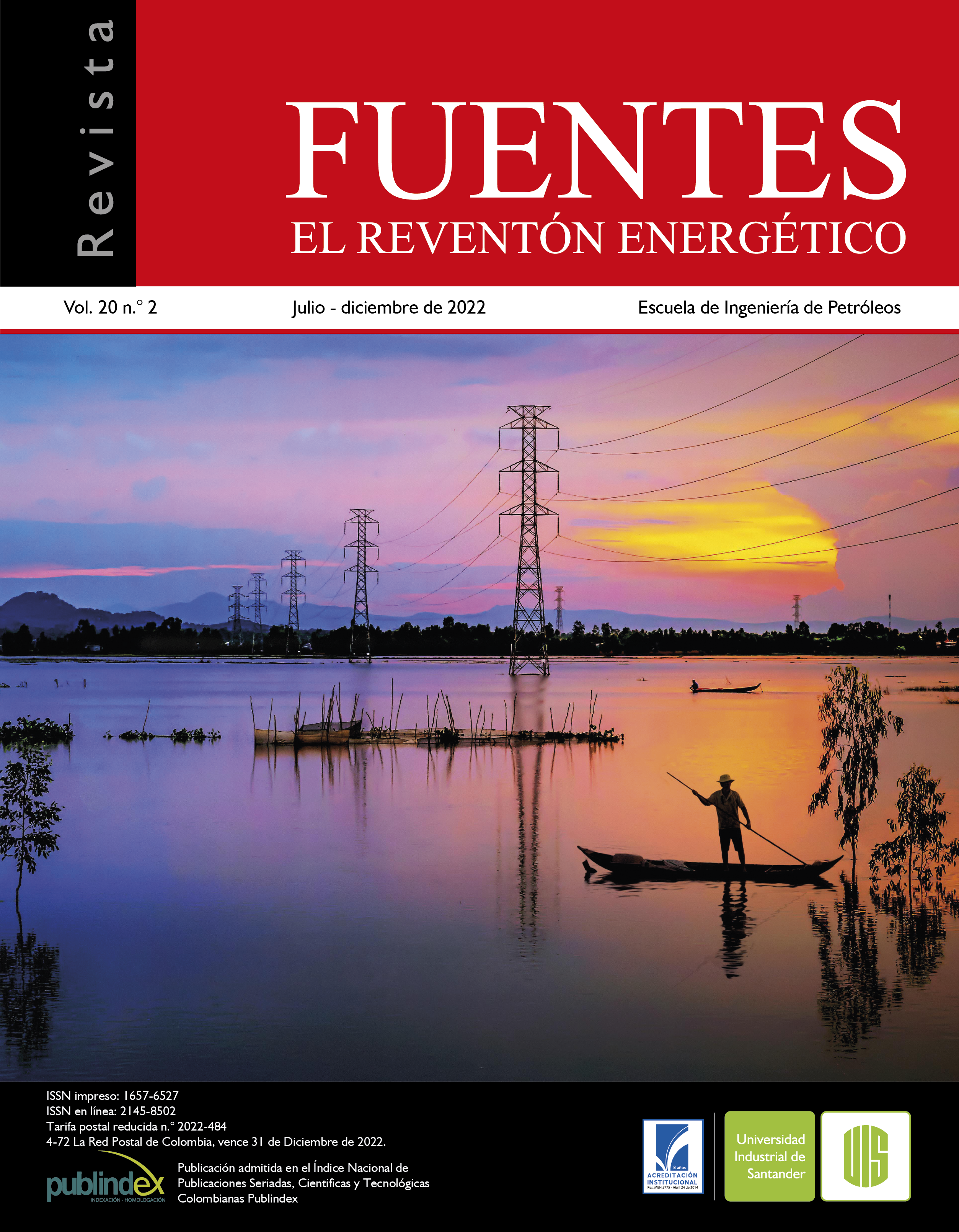Design of Multilateral Wells for the Conditions of Guajira Offshore Basin in the Colombian Caribbean Sea
Publicado 2022-12-15
Palavras-chave
- Multilaterals wells,
- Guajira offshore Basin,
- metoceanic conditions,
- wells planning and design,
- Drilling and completion multilateral wells.
Como Citar

Este trabalho está licenciado sob uma licença Creative Commons Attribution 4.0 International License.
Resumo
This article proposes the design of a multilateral well on the Tayrona area conditions located in the Guajira Offshore basin that belongs to the Colombian Caribbean. This zone has a strategic importance for Colombia, because is where the Orca-1 well was drilled, integrating a substantial gas reservoir detection in 2014, which is a project with great development potential, that can help meet the energy needs of the country, where Ecopetrol, Petrobras, and Repsol are contributing. Reviewed to know about the technique of drilling multilateral wells, perform an analysis of the conventional and modern existing alternatives and both the environmental and operational variables influencing the drilling of this kind of offshore wells. In addition, a research study of environmental and geological conditions of the interest area, the Colombian Guajira offshore, was carried out to determine the feasibility of the application of this technology. The design of the multilateral well UIS-OFF-MO1 was proposed, with two opposite branches to increase production in the reservoir in which Orca-1 well is situated, to increase the drainage area and contact an area of the reservoir, which is separated by a normal no-flow fault.
Downloads
Referências
- 1219. Rangel, P. & Amaya, J. (2012). Evaluation of Multilateral Well Drilling Technology Applied to the Colorado Field [Graduate Thesis]. Bucaramanga: Industrial University of Santander. Faculty of Physicochemical Engineering; 150p
- A. Boniface,O. and Ogbonna J. (2012) "A New Fracture Gradient Prediction Technique That Shows Good Results in Gulf of Guinea." Paper presented at the Abu Dhabi International Petroleum Conference and Exhibition, Abu Dhabi, UAE, November 2012.
- Abouzar, M. & Moghadasi, J. (2009). An Overview To Applicability Of Multilateral Drilling In The Middle East Fields. Society Of Petroleum Engineers.
- Adams, N. & Kuhlman L. (1991). Shallow Gas Blowout Kill Operations. Society Of Petroleum Engineers. Doi:10.2118/21455-Ms.
- Agencia Nacional De Hidrocarburos. (2004). Contrato De Exploración Y Explotación Bloque Tayrona.
- Ayokunle, A. & Hashem, M. (2016). Design Optimization Of Multilateral Wells In Heterogeneous Reservoirs. P. 25–28. Https://Doi.Org/10.2118/182764-Ms.
- Bosworth, S., El-Sayed, H., Ismail, G., Ohmer, H., Stracke, M., West, C. & Retnanto, A. (1998). Key Issues In Multilateral Technology Drilling, Completing And Later Reentering Wells With Multiple Branches To Improve. Oilfield Review, 10(4), 14–28.
- Colombia. Ministry of Mines and Energy. Resolution 40295 of October 7, 2020. By which the Technical Criteria for the Exploration and Exploitation of Offshore Hydrocarbons in Colombia are Established. Title 1, Article 4.Daniel, I., Higgings, A. & Ayala, C. (2015). Caracterización Del Régimen Del Viento Y El Oleaje En El Litoral Del Departamento Del Atlántico, Colombia. Boletín Científico Cioh, 33: 231–244.
- Eaton, B. A. (1974, January). Fracture gradient prediction and application. In Northern Ohio Geol. Soc. Symp. Salt;(United States) (Vol. 2, No. CONF-7304100-). Universal Drilling and Eng Consult Inc.
- Gallivan, J.; Newitt, D.; & Olsen, M. (1995). Quantifying The Benefits Of Multilateral Producing Wells. Spe 30441.
- Giraldo, A. (2014). Ecopetrol Announces First Discovery of Hydrocarbons in Deep Waters of the Colombian Caribbean.
- Hill A. D., Zhu D. & Economides M. J., Multilateral Wells Book. Society Of Petroleum Engineers. 2008.
- Jardon, M., Paez, R., Sotomayor, G. & Umudjoro, K. (2003). Nuevos Aspectos De La Construcción De Pozos Multilaterales. Oilfield Review, 56–75.
- Lopez, A. (2019). Orca, The Well With Which Offshore Extraction Will Begin [News]. Briefcase. [Consulted: June 20, 2020]. Available From: Shorturl.At/Mtydz.
- Lyu, Z., Song, X. & Geng, L. (2018). A Semi-Analytical Method For The Multilateral Well Design In Different Reservoirs Based On The Drainage Area. Journal Of Petroleum Science And Engineering. Https://Doi.Org/10.1016/J.Petrol.2018.09.024.
- Mao, L., Zeng, S., Liu, Q., Wang, G. & He, Y. (2020). Dynamical Mechanics Behavior And Safety Analysis Of Deep Water Riser Considering The Normal Drilling Condition And Hang-Off Condition. Ocean Engineering, 199, 106996.
- Medley, G. (1998). Shallow Water Flow Technology Update. Offshore Technology Conference. Doi:10.4043/8731-Ms.
- Mitchell, R. & Miska, S. (2011). Fundamentals Of Drilling Engineering, Vol 12. Society Of Petroleum Engineering.
- Morales, D. Montoya, S. & Bernal, O. (2017). Assessment Of Extreme Wind And Waves In The Colombian Caribbean Sea For Offshore Applications. Universidad Nacional De Colombia.
- Oceanographic and Hydrographic Research Center. (2019). Caribbean Climatology, Climatic Seasons in the Colombian Caribbean Coast [Online]. [Accessed October 25, 2020]. Available At: Shorturl.At/Hpgk5.
- Perez, A. (2018). Compass, Setting The Course [Presentatión]. Landmark, Halliburton.
- Rendon, U. (2013). Casing Layout and Design Guide. National Polytechnic Institute.
- Westgard, D. (2002). Multilateral TAML Levels Reviewed, Slightly Modified
